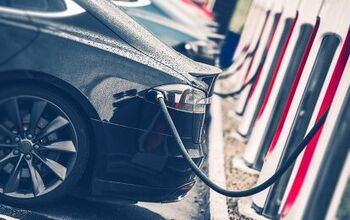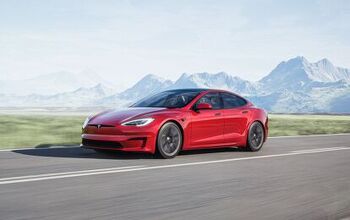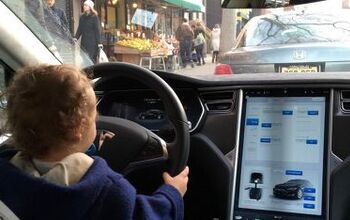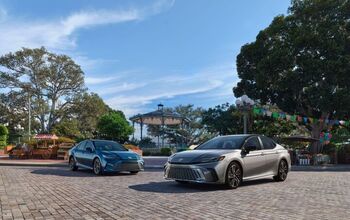Tesla Removes Full Self Driving Beta Over 'Issues'

Tesla Inc. pulled its Full Self Driving (FSD) beta off the table over the weekend, with CEO Elon Musk stating that testers had been “seeing some issues with [version] 10.3.”
To remedy the issue, the company has reverted back to FSD 10.2 temporarily. Musk made the announcement over social media on Sunday morning. The following day, he had already promised that version 10.3.1 would be coming out to address problems encountered during the exceptionally short public testing phase.
“Please note, this is to be expected with beta software,” the CEO noted. “It is impossible to test all hardware configs in all conditions with internal QA, hence public beta.”
Let’s get a few things out of the way before we dive into what actually happened. Despite Tesla promising vehicular autonomy via its expensive Full Self Driving suite for years, FSD may not actually be capable of living up to its namesake. Elon Musk has even stated that it probably would always require some form of supervision when feature-complete. At best, that leaves the completed suite achieving conditional automation (SAE Level 3) but falling short on its promise of delivering total self-driving functionality (SAE Level 5).
Had we teleported directly from 1991, even the worst versions of FSD would be a technological marvel. But we’re living in the years following a decade where the automotive industry promised that self-driving cars would be commonplace by 2020. It’s also becoming clear that the trade-offs for implementing unfinished versions of these systems may not be worth it. Manufacturers are advancing driver-monitoring protocols, including cabin-facing cameras that track eye and facial movements that seem to represent the anthesis of a luxurious automotive experience.
There are also mounting legal questions in regard to who is liable when an autonomous vehicle is involved in a crash. Despite reports highlighting the shortcomings of advanced driving aids, the industry would very much like to keep drivers responsible as a way to avoid seeing legal actions being taken against the business. This has also encouraged the influx of monitoring measures while making it imperative that self-driving systems function near perfectly — the latter of which has proven to be exceedingly difficult.
Based on the limited time the FSD beta was active, it’s difficult to get a real sense of what went wrong. However, there are numerous videos of citizens testing the system showcasing some reoccurring issues. Beta vehicles were obviously still having trouble dealing with construction zones and poorly marked lanes. Users also noted that cars became timider while using similar features, asking the driver to retake control under conditions where it previously would not. There were also a few social media postings alleging that their car was making decisions to deactivate certain safety settings without human input.
Reuters reported that drivers were experiencing Forward Collision Warnings when there was no immediate danger, sometimes with their Tesla braking automatically to avoid phantom obstacles. Ironically, that was one of the systems other users were claiming vehicles were mysteriously shutting off.
This may explain why Tesla required beta testers to be subjected to a safety score to qualify. But we’re not about to claim this is the best way for an automaker to operate their software development programs. Withholding access to a system that you paid thousands extra for (and doesn’t even work) because you failed to drive in a ridiculously conservative manner somehow doesn’t seem fair.
[Image: Tesla]

A staunch consumer advocate tracking industry trends and regulation. Before joining TTAC, Matt spent a decade working for marketing and research firms based in NYC. Clients included several of the world’s largest automakers, global tire brands, and aftermarket part suppliers. Dissatisfied with the corporate world and resentful of having to wear suits everyday, he pivoted to writing about cars. Since then, that man has become an ardent supporter of the right-to-repair movement, been interviewed on the auto industry by national radio broadcasts, driven more rental cars than anyone ever should, participated in amateur rallying events, and received the requisite minimum training as sanctioned by the SCCA. Handy with a wrench, Matt grew up surrounded by Detroit auto workers and managed to get a pizza delivery job before he was legally eligible. He later found himself driving box trucks through Manhattan, guaranteeing future sympathy for actual truckers. He continues to conduct research pertaining to the automotive sector as an independent contractor and has since moved back to his native Michigan, closer to where the cars are born. A contrarian, Matt claims to prefer understeer — stating that front and all-wheel drive vehicles cater best to his driving style.
More by Matt Posky
Latest Car Reviews
Read moreLatest Product Reviews
Read moreRecent Comments
- Dartdude The global climate scam is a money and power grab. If you follow the money it will lead you to Demo contributors or global elitists. The government needs to go back to their original purpose and get out of the public sector.
- FreedMike Miami is a trip - it's probably the closest thing we have to Dubai in this country. If you are into Lambos and the like, definitely go - you'll see a show every night. These condos fit right in with the luxury-brand culture - I'm surprised there isn't a Louis Vuitton or Gucci building. I was in Miami Beach in January with my fiancee, and we shared a lovely lunch that consisted of three street tacos each, chips and salsa, and two sodas. Tab: $70.00, with tip. Great town, assuming you can afford to live there.
- Kjhkjlhkjhkljh kljhjkhjklhkjh Pay money to be inundated in Adverts for a car that breaks when you sneeze? no
- Laflamcs My wife got a new 500 Turbo in 2015. Black exterior with an incredible red leather interior and a stick! The glass sunroof was epic and it was just about the whole roof that seemed to roll back. Anyway, that little bugger was an absolute blast to drive. Loved being run hard and shifted fast. Despite its small exterior dimensions, one could pile a lot into it. She remember stocking up at COSTCO one time when a passerby in the parking lot looked at her full cart and asked "Will it all fit?" It did. We had wonderful times with that car and many travels. It was reliable in the years we owned it and had TONS of character lacking in most "sporty" car. Loved the Italian handling, steering, and shift action. We had to trade it in after our daughter came along in 2018 (too small for 3 vacationers). She traded it in for a Jeep Renegade Latitude 6 speed, in which we can still feel a bit of that Italian heritage in the aforementioned driving qualities. IIRC, the engine in this Abarth is the same as in our Renegade. We still talk about that little 500..........
- Rochester If I could actually afford an Aston Martin, I would absolutely consider living in an Aston themed condo.


































Comments
Join the conversation
if I spent that much on a car and FSD I wouldn't want to be the beta tester for them. Granted it takes a long time to work out all the problems but until it's ready for prime time they shouldn't be charging $10K for something they aren't actually delivering.
Self driving has been a scam from day one. More proof Musk is nothing more than a snake oil salesman (sorry sales person….don’t want to offend the “woke”).